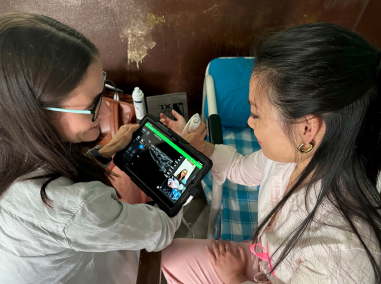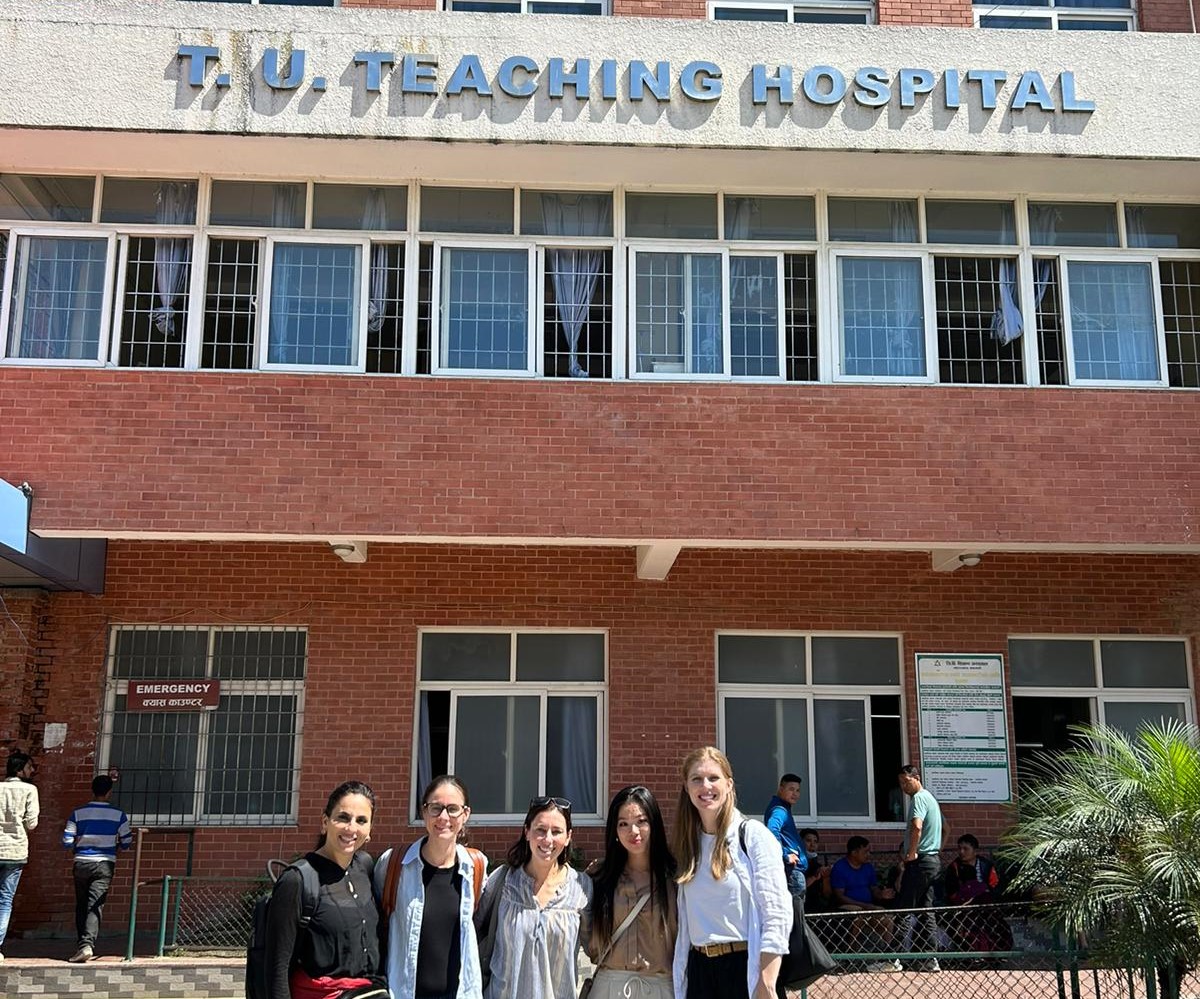GETTING INVOLVED IN CU RADIOLOGY



Global Health
Purpose: Our priorities are:
1. Establish a program that is mutually beneficial to the University of Colorado radiology community and that of our target partner site
2. Adhere to the tenets of responsible global health practice, which implies working toward sustainable capacity-building rather than creating a relationship of dependency
3. Create a meaningful educational experience for our radiology residents to develop expertise as part of a multi-cultural, multi-disciplinary team assessing and improving healthcare delivery systems in a low-resource setting, and
4. Contribute to the radiology literature to promote the field of global health radiology in service of global health equity.
Primary goals of this International Radiology Rotation are:
1. Gain a perspective on global radiology as a vital aspect of public health and prepare residents for lifelong involvement in global health
2. Increase interpretative skills in basic radiology modalities and gain a better understanding of cost-conscious care
3. Build medical knowledge through exposure to a variety of infectious, oncologic, and other diseases seen more frequently or with different presentations in less industrialized countries
4. Acquire experiential knowledge about the provision of radiologic care in a low-income environment and demonstrate a logical and appropriate clinical approach to the care of patients, utilizing local resources to recognize that lessons learned during the 2-4-week rotation can be integrated into practice when the resident returns to the US.
Requirement: Each participating resident is required to prepare a poster, oral presentation, or manuscript focused on their global health work by the end of their R4 year.
Two residents per class. Residents must apply through the common residency track application and are selected in their R1 year to be a part of the Global Health Pathway
Reward:
- All three global health residents in inaugural class were given leadership positions in RAD-AID International
- RAD-AID residents were presented at the RAD-AID International Annual Conference (an ACR accredited CME event and the largest global health radiology conference)
- Global Health residents presented a webinar to an international audience
- RAD-AID participants have created a manuscript for Academic Radiology that describes the unique global health radiology program at University of Colorado
- We have been asked to create a web-based resource for APDR members on global health radiology education
Research
How it Works:
One resident selected per year for the research track
Residents in the track will have 20% protected time starting in their R2 (PGY-3) year which will continue thru the R4 (PGY)5) year, dedicated to research
- This will be the equivalent of 1 day per week, which is selected at the discretion of the service but coordinated by the chief residents
- This protected time will only occur while on UCH and CHCO rotations. The residents’ elective months will serve as the make-up time for the rotations at DH or the VA. Clinical services and patient care will be the first priority.
Requirement:
Peer-reviewed published manuscripts: 2+ manuscripts
- Manuscripts will be first-authored, in high-quality journals, and should be empirical, hypothesis-driven projects or lead to hypothesis-driven research
Presentations at local and national meetings:2+ local and national meetings
Grant/award submissions: 1+ small grant/award applications
Development/Demonstrated Research Skills: The track will take note of development of progress in development of various research skills.
All applications will be reviewed by the faculty research committee. Applicants will be selected based on the strength of the application, feasibility of the research plan, and prior record of research success.
Reward: The goal of the resident research track is to prepare residents to successfully compete for a career development award. Each resident will come into the track with various strengths and weaknesses, differences in publication record, skill set, prior accomplishments, etc. Thus, milestones to be well prepared for these outcomes may differ from resident-to-resident. As such, the milestones below are minimum expectations for residents – though they should be considered a general guide.
Education
Residents in this program will gain knowledge, attitudes and teaching skills necessary to become an academic teaching physician.
How it Works:
First Year Residents: Apply for the education track in January
Second Year Residents: Scheduled on elective for one of the Residents as Medical Educators sessions in their second year. (May and December)
Third Year Residents: Work in the following roles:
- BAR lab lecturer
- TTR program as instructors/facilitators for radiology sessions
- Radiology elective coordinators
- First and second year school of medicine lecturers
Fourth year: Possible two-week elective with the TTR program as a course coordinator
- Co-Course Director for one of the radiology electives (Diagnostic, Nuc Med, IR) during the elective month
Research Requirement: Every resident in the program will be required to undertake an educational research project, with the expectation that the project will result in a presentation and publication. This project will be submitted to AUR for a presentation during the third or fourth year.
Why: As academic systems have shifted to allow physicians to be promoted via education pathways, this system will allow residents to explore an interest in education earlier and increase possible recruitment to academics.
Supervisor/mentors: The residents will be supervised in collaboration with the medical school radiology lead and the director of the BAR lab.
***Residents on the education, research, or global health track may also participate in track-specific meetings (such as ITAR at RSNA, ARRALD at AAR, and RAD-Aid in Nepal).